Merino Sheep
- February 8, 2024
- 0 comment
Merino sheep are a breed of sheep renowned for producing some of the world’s finest and softest wool. Originating in Spain, Merino sheep have a long and illustrious history, favored by Spanish royalty and nobility for their exceptional wool quality. What sets Merino wool apart is the incredibly fine and luxurious fibers it yields, making it highly sought after in the textile industry. These sheep come in various colors, from white to shades of gray and brown, adding to their visual appeal.
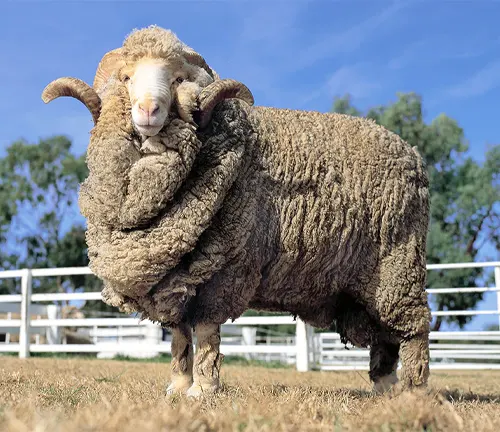
Merino sheep are known for their adaptability to different climates, thriving in both hot and cold environments. Their wool is used to create a wide range of products, including high-end clothing, blankets, and yarn, thanks to their superior comfort, natural insulation, moisture-wicking properties, and odor resistance. Merino wool continues to be a top choice for those seeking both quality and sustainability in their textiles.
| Attribute | Description |
|---|---|
| Origin | Spain |
| Wool Quality | Incredibly soft and fine |
| Wool Color | Varies, including white, gray, and brown |
| Adaptability | Thrives in various climates |
| Shearing Frequency | Typically sheared once a year |
| Primary Use | High-end clothing, blankets, and textiles |
| Comfort | Exceptionally comfortable against the skin |
| Insulation | Natural insulation for all seasons |
| Moisture-Wicking | Keeps you dry by absorbing and releasing moisture |
| Odor Resistance | Naturally resists odors |
| Environmental Impact | Low environmental impact, making wool sustainable |
Nature’s Softest and Finest Wool Producers
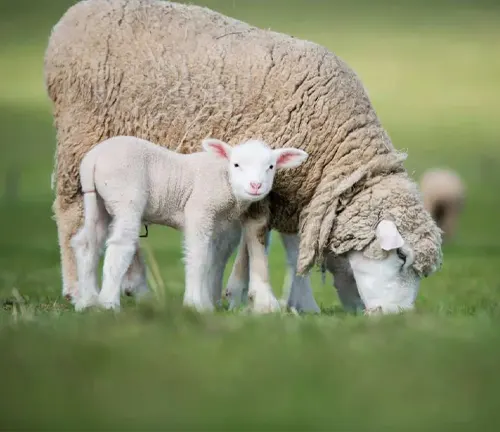
Merino sheep are renowned worldwide for their exceptional wool quality and have been a cornerstone of the textile industry for centuries. These remarkable sheep produce wool that is not only incredibly soft but also boasts numerous advantages, making it highly sought after in various applications. In this article, we will delve into the world of Merino sheep, exploring their history, characteristics, wool production, and the reasons behind their unparalleled popularity.
A Brief History of Merino Sheep
Origins in Spain
Merino sheep have a rich history that dates back to medieval Spain. The term “Merino” itself is derived from the Spanish word “merino,” which means royal. The breed was initially favored by Spanish royalty and nobility due to the exceptional quality of their wool.
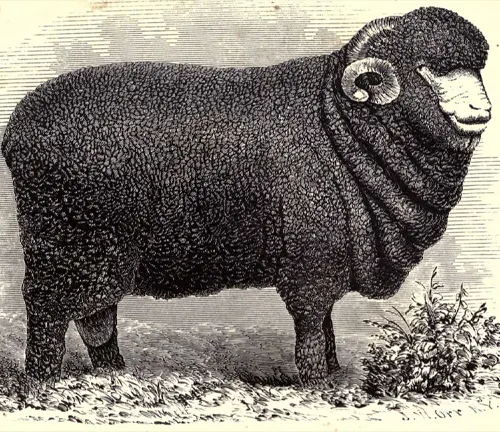
Global Expansion
In the 18th century, the Spanish Crown initiated a plan to introduce Merino sheep to other parts of the world, including Australia, New Zealand, and South Africa. These regions proved to be ideal for Merino sheep farming, and the breed thrived in their new environments.
Characteristics of Merino Sheep
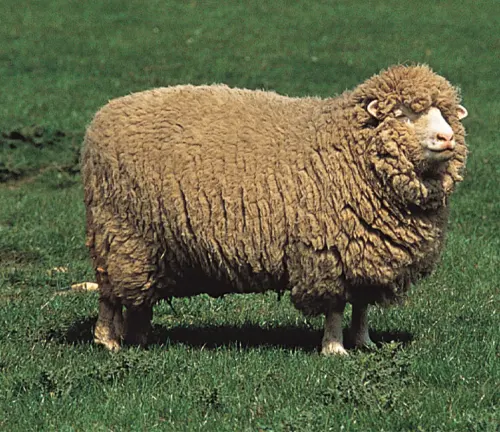
Exceptional Wool Quality
The outstanding quality of the wool produced by Merino sheep, characterized by its fine and soft fibers, is the most significant and sought-after feature. This fine texture sets Merino wool apart from other breeds and makes it highly valuable in the textile industry.
Adaptability
Merino sheep’s ability to thrive in diverse climates and environments is crucial. They can withstand both hot and cold conditions, allowing for widespread breeding and wool production.
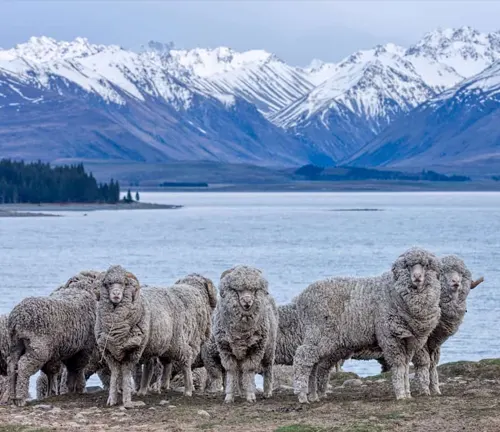
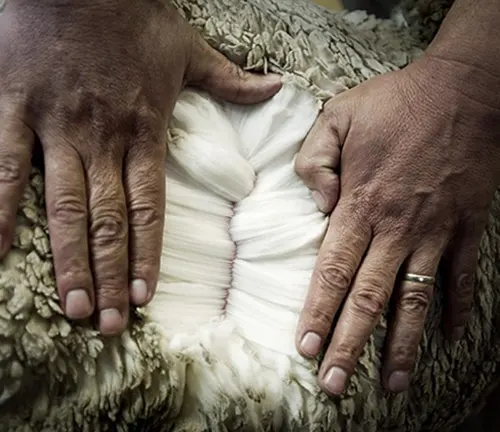
Natural Insulation
The natural insulation provided by Merino wool makes it an essential characteristic. It keeps wearers warm in cold weather and cool in hot weather, making it suitable for a wide range of clothing applications.
Moisture-Wicking Properties
Merino wool’s moisture-wicking abilities are highly valuable, as they help keep individuals dry by absorbing and dispersing moisture away from the body. This feature is particularly beneficial for outdoor activities and sportswear.
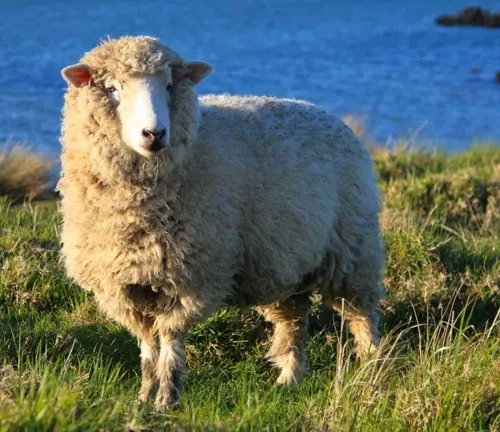
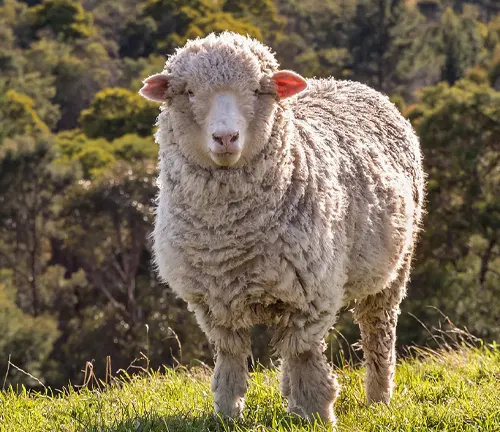
Odor Resistance
The inherent odor resistance of Merino wool is another significant trait. It allows garments made from this wool to remain fresh and odor-free even after extended use, making it an excellent choice for active individuals and everyday wear.
The Wool Production Process
Shearing
Shearing is a critical step in wool production. It involves the careful and humane removal of the wool fleece from the sheep’s body. Skilled shearers ensure the process is performed efficiently without harming the sheep.
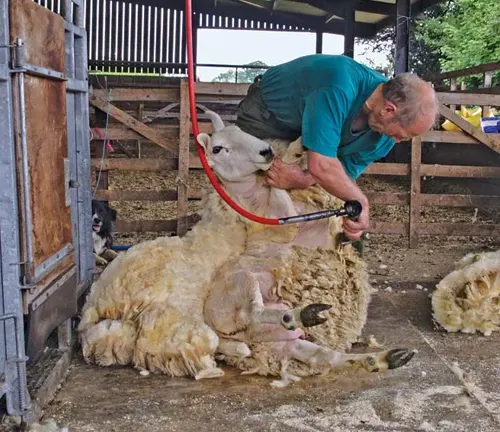
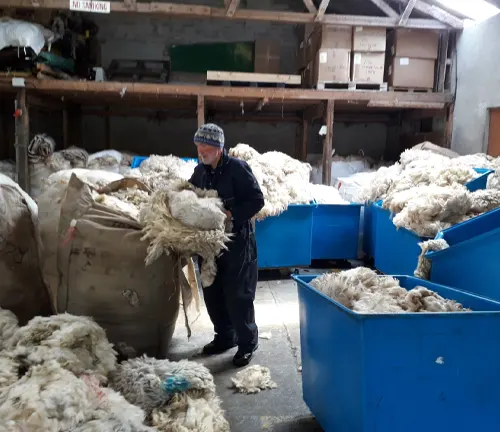
Sorting and Grading
After shearing, the wool is sorted and graded based on its quality and characteristics. This step is crucial for separating the finest wool fibers, which are highly valued for their softness and fineness, from coarser fibers.
Processing and Manufacturing
Once the wool is sorted, it undergoes various processing stages, including cleaning, carding, spinning, and weaving. These processes transform the raw wool into usable forms such as yarn, fabric, or garments.

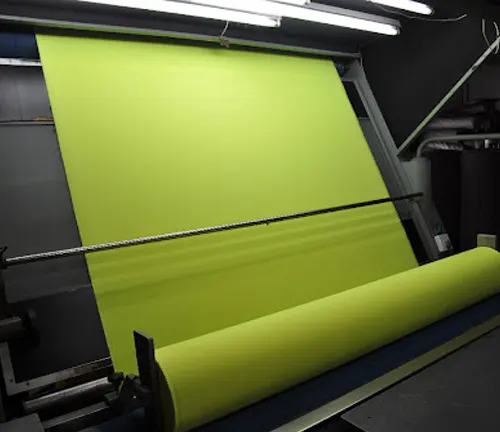
Quality Control
Quality control is a vital aspect of the wool production process. Ensuring that the wool meets specific standards for softness, fiber length, and other characteristics is essential to produce high-quality wool products.
Sustainability and Ethical Practices
In modern wool production, sustainable and ethical practices are increasingly important. Farmers and producers are adopting environmentally friendly and humane practices, which include responsible land management, animal welfare, and eco-friendly processing methods.
Reasons for the Popularity of Merino Wool
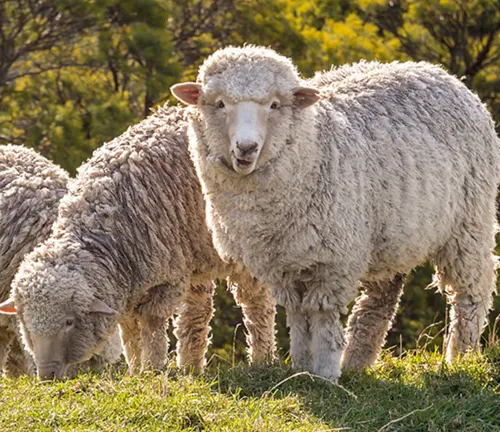
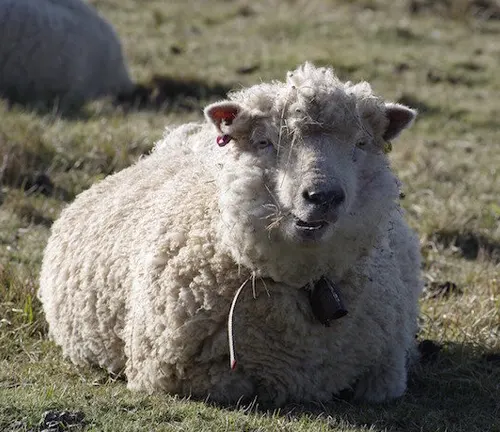
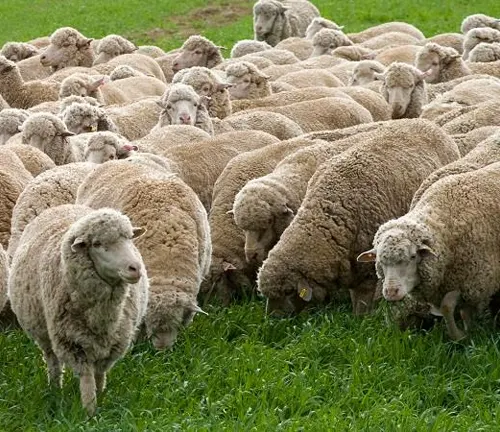
- Superior Comfort
Merino wool is highly regarded for its exceptional softness and comfort against the skin, making it a top choice for clothing that requires a gentle touch. - Natural Insulation
The natural insulating properties of Merino wool make it an ideal material for maintaining body temperature. It keeps wearers warm in cold conditions and cool in hot weather, offering versatility in different climates. - Moisture-Wicking
Merino wool’s ability to wick moisture away from the body keeps individuals dry and comfortable, especially during physical activities and in humid conditions. - Odor Resistance
The natural odor resistance of Merino wool allows clothing made from this material to stay fresh and odor-free, even after extended use, making it suitable for active lifestyles. - Sustainability
Merino sheep farming is known for its low environmental impact, contributing to the sustainability of Merino wool production. Consumers are increasingly drawn to eco-friendly options, enhancing the popularity of Merino wool products.
Different Species
Spanish Merino
The original Merino sheep that originated in Spain and served as the foundation for the breed. They are known for their exceptionally fine wool.
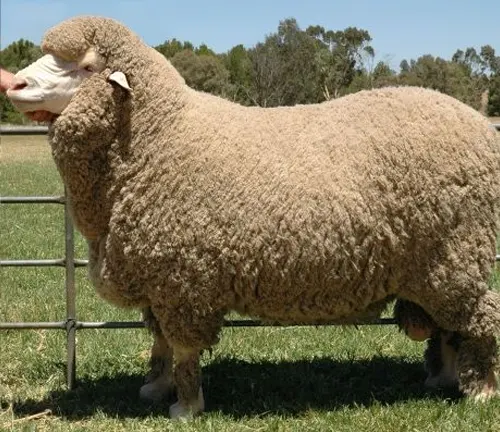
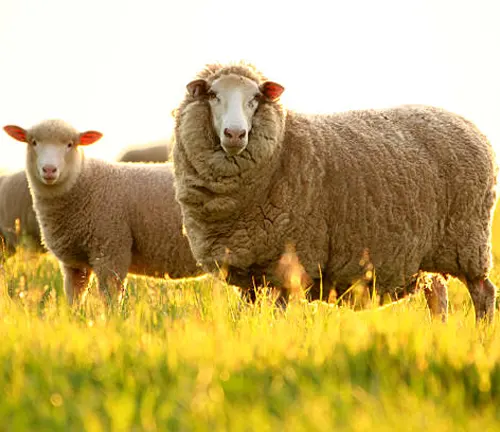
Australian Merino
Australian breeders have developed Merino strains adapted to the country’s diverse climates, resulting in various sub-breeds such as the Saxon Merino and Peppin Merino.
American Rambouillet
While not technically a Merino breed, the American Rambouillet has Merino ancestry and is known for its fine wool. These sheep have been bred in the United States for their soft and high-quality fleece, which rivals that of the Merino.
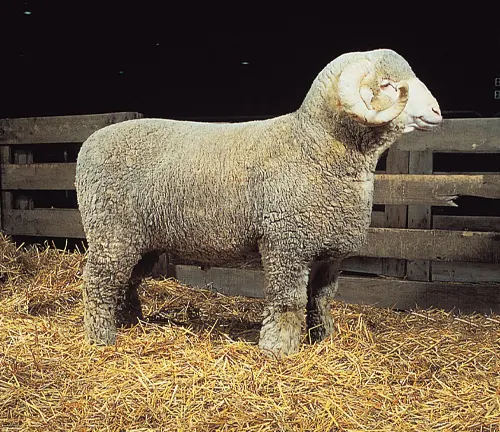
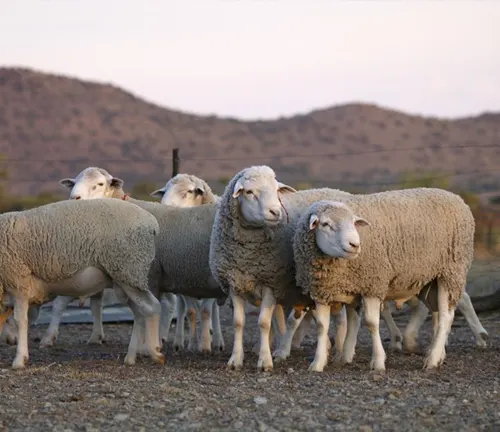
South African Merino
In South Africa, Merino sheep have also adapted to local conditions, resulting in the South African Merino strain. These sheep are known for their ability to thrive in the country’s diverse climates and produce wool of exceptional quality.
New Zealand Merino
New Zealand is home to its strains of Merino sheep, bred for their wool quality and adaptability. These sheep have become well-suited to the country’s unique climate and have contributed to New Zealand’s reputation as a producer of high-quality Merino wool.
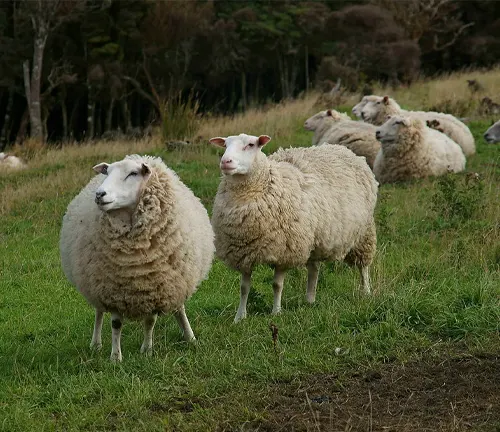
Frequently Asked Question (FAQs)
1. What Are Merino Sheep?
Merino sheep are a unique breed renowned for their incredibly fine and soft wool. They have been cherished for centuries for their exquisite fleece.
2. Where Do Merino Sheep Originate?
Merino sheep trace their origins back to medieval Spain. The term “Merino” itself means royal, reflecting their historical association with Spanish nobility.
3. What Sets Merino Wool Apart?
The hallmark of Merino wool is its unmatched softness and fineness, with wool fibers measuring only a few microns in diameter.
4. Are All Merino Sheep the Same?
No, Merino sheep have diversified over time due to selective breeding and adaptation to different climates, resulting in various strains and breeds.
5. Do Merino Sheep Thrive in Different Climates?
Yes, Merino sheep are incredibly adaptable and can flourish in diverse climates, ranging from hot and arid regions to cold and mountainous terrains.
6. How Often Are Merino Sheep Sheared?
Merino sheep are typically sheared once a year to harvest their prized wool, ensuring their comfort and continued wool production.
7. What Products Are Made from Merino Wool?
Merino wool is used to create a wide array of products, including clothing, blankets, socks, and even sportswear, thanks to its comfort and performance attributes.
8. Is Merino Wool Sustainable?
Yes, Merino sheep farming is recognized for its minimal environmental impact, making Merino wool a sustainable choice.
9. How Does Merino Wool Regulate Temperature?
Merino wool naturally provides insulation, keeping wearers warm in cold weather and cool in hot conditions by regulating body temperature.
10. Does Merino Wool Wick Moisture?
Absolutely, Merino wool is highly effective at wicking moisture away from the skin, keeping individuals dry and comfortable during various activities.
11. Is Merino Wool Odor-Resistant?
Yes, Merino wool is naturally odor-resistant, ensuring that garments remain fresh even after extended wear.
12. Can Merino Wool Be Worn in Hot Weather?
Indeed, the moisture-wicking and temperature-regulating properties of Merino wool make it suitable for hot weather, providing comfort and breathability.
13. Are There Different Types of Merino Wool?
Yes, there are variations in Merino wool quality based on factors like fineness and softness, resulting in different grades and characteristics.
14. What Are the Benefits of Wearing Merino Wool in Outdoor Activities?
Merino wool’s ability to regulate temperature, wick moisture, and resist odors makes it an excellent choice for outdoor enthusiasts.
15. How Can I Care for Merino Wool Products?
Merino wool should be washed gently with mild detergents and air-dried to maintain its softness and properties.


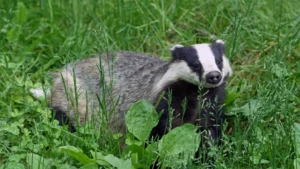


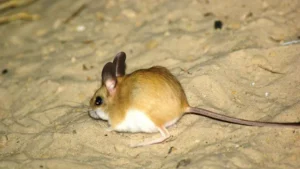

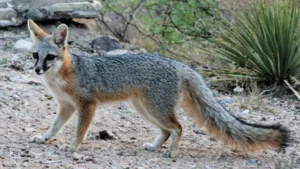


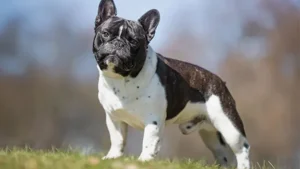

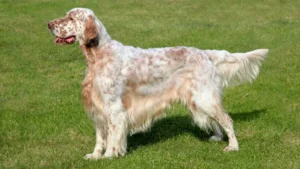
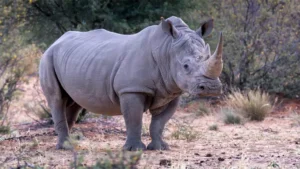
Leave your comment